|
LISTEN TO THIS THE AFRICANA VOICE ARTICLE NOW
Getting your Trinity Audio player ready...
|
“Each time a woman stands up for herself, without knowing it possibly, without claiming it, she stands up for all women,” celebrated African American Author, poet, and civil Activist Maya Angelou.
With the milestone that has been made in gender balance today, it’s difficult to believe that there was a time when women did not have a voice in society. In the wake of post-independence, very few Kenyan women were in universities, government offices, the political arena, and even the armed forces.
Kenyan women have, over the years, had to endure gender-based violence, sexual violence, harassment, traditional bias, Female Genital mutilation (FGM), and forced marriage, among other discrimination.
Some of the significant achievements of Kenyan women have been breaking through in the political scene.
In honor of Women’s Month, Africana Voices recognizes the women of many firsts who have paved the way for more Kenyan women to stand up for their rights.
Grace Onyango: First Woman to be Mayor and MP
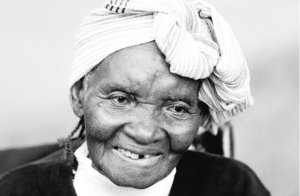
Although Grace Onyango is not widely known, she was a woman of valor during her heydays. She was elected as the first woman mayor of Kisumu in 1965, just two years after the country gained independence.
Onyango broke the glass ceiling defying cultural barriers against women and climbing up the ranks of the political system during the country’s post-independence era.
As mayor, she’s remembered for advocating to replace every dead or retired male officer in the town with their female relatives.
In 1969 she became the first female Kenyan MP after she won the crowded race dominated by men to represent the Kisumu town constituency in parliament. She served until 1983.
Her arrival at the legislative house was not quiet. Although a minority, she was the first woman to sit as a temporary speaker in the speakers’ chair.
The towering figure also served as the secretary general of the Luo Union (East Africa), the chair of the child Welfare Society, Kisumu District, and was one of the founding Trustees for the national fund for the Disabled of Kenya in 1980.
Onyango died on March 8, 2023, while receiving treatment at the Jaramongi Oginga Odinga Teaching and Referral Hospital in Kisumu.
Azimio party leader Raila Odinga mourned her as a great role model and a trailblazer in Kenya’s political leaders who never let her gender stand in the way of competing with men and winning.
Charity Ngilu: First Woman to Run for President In Kenya
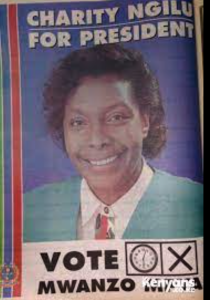
Politics in Kenya is business dominated by men, electoral politics has always been hostile and violent for women, and men use casual sexism and discrimination to demean women who dare to go against them.
Charity Ngilu is one of the formidable women who have, over the years, demonstrated the tenacity and a thick skin to deal with blows melted to her by men.
With a short career in politics, the charity took the bold step to vie for a presidential seat in 1997, breaking the male dominance in the country’s top political seat.
Her political career had started five years before, in 1992, when she vied and won the Kitui central parliamentary seat.
Although her candidacy was a longshot, her move was a major victory for Kenyan women, who had been politically and economically marginalized for decades.
Through her campaign, she was regarded as Moi’s most serious challenger out of a race of 15 contesters, in a crowded race of men, she came out fifth ahead of notable male politicians like Martin Shikuku, George Anyona, and Koigi wa Wamwere.
It did not come as a surprise when in 2017, she was among the first three women to win the gubernatorial seat, regarded as a milestone in gender equality in the political space.
Justice Effie Owuor: First Woman To Service and High Court Judge In Kenya
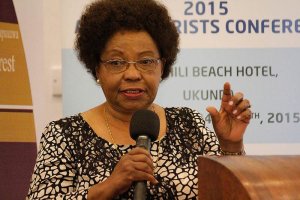
Justice Effie Owour was Kenya’s first female state counsel, magistrate, high court judge, and court of appeal judge at a time when men still dominated the corridors of power.
Owuor began her career in 1967 after graduating with a law degree from Dar Salaam University, the only law school in the region.
She joined the Attorney General’s state law office immediately after graduating, thus becoming Kenya’s first female state counsel and woman prosecutor.
In 1971, the mother of six was appointed Kenya’s first female magistrate. She was later elevated to a senior magistrate in 1974, serving ten years.
In 1983, she was appointed Kenya’s first woman Justice of the High Court by the country’s second president, the late Daniel Moi.
Among her many achievements, she is also credited for chairing the task force that resulted in the children’s act 2001, improving the law that governs children’s rights in Kenya.
In 2005 she was appointed at the ICC in Hague by the Kibaki government.
With a career spanning over 45 years, she recalled the state of affairs when she served in the judiciary as the only woman in a career believed to be reserved only for men when she was invited to speak during the inauguration of Martha koome as CJ.
Following her challenges in the legal field, the veteran judge noted that the country was honored to witness the installation of the first female chief justice.
“It was not easy that change has amalgamated where women are also accepted in society. It’s all in the streets that women can do it. Kenya has not misplaced its trust in having you as CJ,” she was quoted by a local media house.
Wangari Maathai: The First African Woman to Win a Nobel Prize
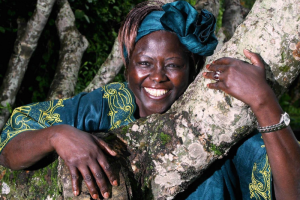
Wangari Maathai was a Kenyan social, environmental, and political activist and the first African woman to win the Nobel Prize for contributing to sustainable development, democracy, and peace.
She was the first woman in east and central Africa to become a Doctor in Philosophy after receiving her Ph.D. from the University of Nairobi. She was also the first woman to chair a department at the same university and the first to be appointed a professor.
In 1977 she established Greenbelt Movement (GBM), which she used to train and pay women to plant trees in their homes, churches, and schools, not only in Kenya.
In Kenya, she is remembered for having fought against the oppressive regime of the late president Daniel Arap Moi.
She is responsible for initiating campaigns that stopped the construction of a skyscraper in Uhuru Park in Nairobi and stopped grabbing public land in Karura forest.
Her activist work was, however, not easy; together with her GBM team, they were constantly beaten, jailed, harassed, and publicly vilified by the Moi regime.
She dedicated her life to promoting environmental conservation and sustainable development in Africa.
Maathai served as an assistant minister in the late President Mwai Kibaki’s government between 2003 and 2005 and as a Member of Parliament of the Tetu constituency.
The Environment Day celebrated worldwide on March 3 is named Wangari Maathai day in recognition of her work and life.
She also used her movement to advocate for democratic space and more accountability from national leaders. Together with her team, they fought against land grabbing and the intrusion of agriculture into the forest.
She died on September 25, 2011, of complications arising from ovarian cancer while receiving treatment at a Nairobi hospital.
Nyiva Mwendwa: First Woman Appointed Cabinet Minister in Kenya
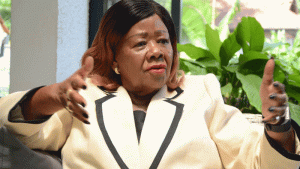
Nyiva Mwendwa was the first Kenyan woman to serve as cabinet secretary after being appointed by the late President Daniel Arap Moi in 1995. She was the minister of culture and social services.
She’s famously remembered for taking her hairdresser to the high-level women’s conference in Beijing in 1995, just three months after her appointment.
The mother of two joined politics in 1974 after clinching the Kitui West Parliamentary seat, which she held until 2002.in 2013 she was elected as Kitui county women’s representative.
“It has not been an easy journey and African customs make it harder, but when women support one another, it works,” quoted Mwendwa after being honored by the government of Kenya as a woman trailblazer for her role in empowering women.
The seasoned politician was conferred the Order of the Golden Heart of Kenya 2nd class Elder of the Golden Heart.
Speaking to a local media house 25 years after the Beijing convention, Mwendwa noted that although Kenya has taken some steps forward, much more needs to be done.
“I am very proud that now we have a few women in cabinet and not only that but they are in key, docket however what women want is 50-50,”
She is an alumnus of the Alliance girls high school and a former teacher at Kenya High School. She was married to Kenya’s first Chief justice, the late Kitili Maluki Mwendwa.
The 80-year-old retired from active politics in 2017 after 40 years on the political scene.
Irene Koki Mutungi: The First Kenyan Woman to Fly a Dreamliner Plane

She is publicly known for being the first woman became the first African woman to fly the Boeing 787 Dreamliner aircraft.
Due to technological innovations, the Dreamliner is considered the most sophisticated commercial airline in the market right now.
But she has been a lady of many first in the aviation industry. She was the first female pilot for Kenya airways. After the national carrier hired her in 1995, she served as the only female pilot for six years.
In 2004, she was the first African woman to become captain of a commercial aircraft when she qualified to command the Boeing 737.
In 2014 captain Irene Koki Mutungi In October 2022, became the first Kenyan to be inducted into the Aviators hall of fame old.
The 46-year-old enjoys mentoring girls and women and advocating for more women in the aviation industry.
In a nearly three-decades-long career, captain koki has inspired many Kenyan women to break through in the highly dominated male industry.
[vertical_lokkna_ads]
Susan Sirma: First Kenyan Woman to Win A Medal On The World Stage
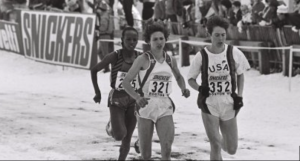
Susan Simra is a retired Kenya middle distance runner well known for being the first black African woman to win a track and field medal at the World championship in 1991. She was also the first Kenyan woman to win an award on the world stage.
Although Kenya is famously known for running, it took a while for Kenyan women to have a breakthrough on the world stage which can easily be attributed to cultural taboos.
Sirma is believed to have paved the way for other Kenyan women to join the running industry.
Unfortunately, the government of Kenya does not honor retired athletes, and most of them languish in poverty in their old age.
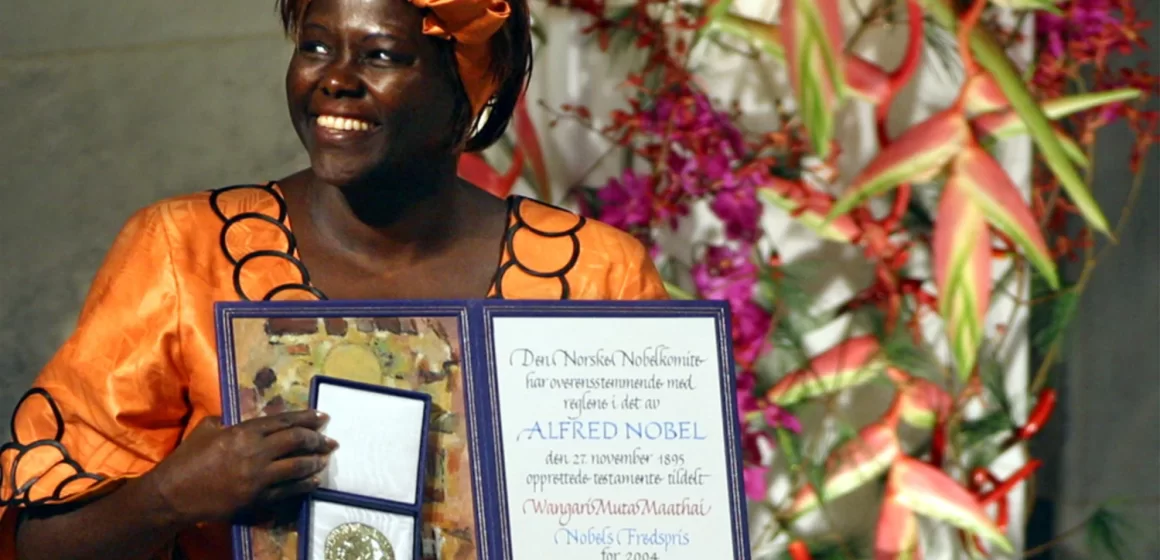



















LEAVE A COMMENT
You must be logged in to post a comment.